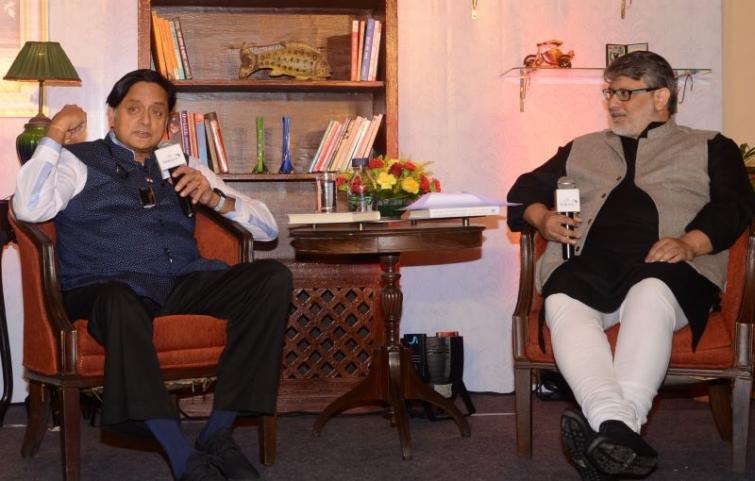
Social media has degraded the political discourse: Shashi Tharoor
Congress Lok Sabha MP from Kerala's Thiruvananthapuram, Shashi Tharoor, was the guest at Kitaab by Prabha Khaitan Foundation earlier this February. As Tharoor's book, co-authored by Samir Saran, The New World Disorder and The Indian Imperative, was launched at the event, the former career officer at the United Nations spoke at length about the Indian and global politics, anti-CAA protests in Delhi's Shaheen Bagh and more. IBNS correspondent Souvik Ghosh brings few excerpts
You are back to Kolkata. How do you feel?
It is lovely to be here. I mean it is one of my favourite cities. I spent my high school years here. Those years were very happy, interesting and educative ones. Those were the days in 1960s when things were complicated here but there was a lot of social ferment and excitement. Intellectually it was very stimulating city to be in and also full of heart. Though it changed a lot in the decades since I kept coming back, I felt the same affection for the city.
Do you describe yourself as the way you have written your Twitter bio?
I am all of these things and I hope more. I am a human being so I react to the things I see around me. I manifest some of those reactions in my work and some in my writing. To my mind, both are the aspects of the same personality. They are the same human being who is responding to the world and in that process I hope tried to make something of a difference through that reaction. So I can make a difference through my work, whether it was UN, refugees, peacekeeping, politics and also as a voice of national conversation and the things that in many ways perhaps transcend that are my reactions to the world through my writing and speaking which are also unabashedly an effort to make a difference.
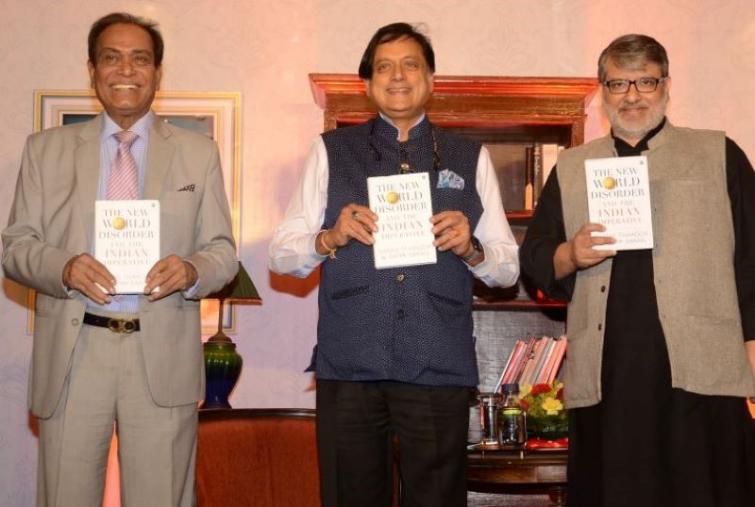
Why did your venture into standup comedy found place in your Twitter bio?
I think it was a one-off. One does a lot of things that doesn't necessarily he has to put in bio (smiles). It was a fun thing to do. I don't regret it at all and I feel gratified when so many people, specially young ones, come saying how much they enjoyed that. But it was just almost like responding to a dare. There is a slight tightrope to be walked between foolhardiness and courage. I thought I was being courageous. I think if I had tried to do it too often, I might trip over into foolhardy. (smiles)
You began your book with a line from W. B. Yeats' The Second Coming, "the best lack all conviction, while the worst are full of passionate intensity". What in today's India does worry you more, the passionate intensity of the worst or the lack of conviction of the best?
Those are two lines that I had insisted to my co-author that they should be epigraphed in the book as it seems to me as an echo much about the world as a hope one can apply to Trump's America as much as one can apply it to BJP's India. But certainly it resonates with us as well but the best of all of these things tend to generalise or simplify in the interest of impact. When one says that the 'best' lack all conviction, in the sense it's a bit unfair because I think there are some of us including me who have not only conviction but also gone out to express it on every available platform and forum.
I am proud that I was the first "mainstream politician" to show up in Shaheen Bagh for example. I was also in JNU and Jamia (Jamia Millia University). To my mind, it's not that all of us are lacking in conviction but the general perception is that those who have virtue of the right humane and constitutionally consistent convictions are seen as perhaps not articulate enough to change a narrative that is driven by the passionate wrongheadedness of those who indeed I would describe among the worst. And that is part of the great irony facing the world today.
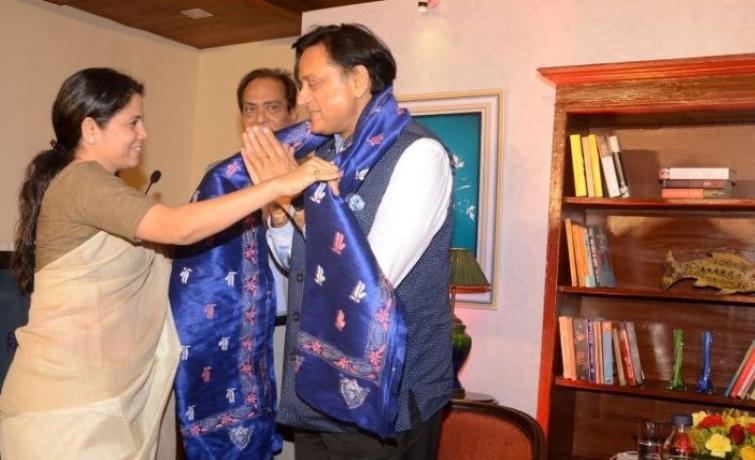
You dedicated the book to your grandson with the line, "May he grow up in a better world". Is the tone hopeful, melancholic or despairing?
I would never say despairing because what has sustained me throughout my life is a faith that there is nothing which can't get better. I have been frequently accused of optimism (being an optimistic person). That is true in the sense that I define optimism as regarding the future with uncertainty. Pessimists have things that are bound to go wrong, terrible, doom, gloom and so on. But optimism means things can go right. Giving a try is the spirit with which I approached the challenges that I have encountered at all stages of my working life and career. It was never despairing but often unhappy or frustrated or alarmed.
In this book, I look at the world. Now if I am asked, I would say today's India of CAA and demonisation of minorities and narrow-minded bigotry, spewed vitriolically from public platforms by the ruling party and its minions, cannot be an example to the world. We need to recreate the India of the founding fathers and the values. Today, we have lot of boasting going on but very little virtue behind it which terribly troubles me.
Do you think the trend of strongmen politicians and populist rule is here to stay?
Look it's certainly more widespread over the last decade than it has been since 1930s. Looking at the world, it is quite astonishing that we have got Trump (Donald Trump) in Washington, Bolsonaro (Jair Bolsonaro) in Brazil, Le Pen (Marine Le Pen) is rising to number two in France, a similar number two in Austria. Literally the number two parties in western Europe are led by strongmen with strong messages and populism. In Hungary, Orban (Victor Orban) has been ruling in exactly the manner Mr. Modi might seems to have learnt from and the same is true for Mr. Erdogan in Turkey who has also been running the country with the same mixture of strongman muscle, ethno-nationalism in his case, religion of Islam.
One of the reasons these leaders are flourishing is because there has been a cultural backlash to globalisation. I think the world has underestimated this kind of backlash for a long time. For example, Hilary Clinton lost the election (in US) because she was derided as a cosmopolitan elitist. People who are rooted to a particular place have began to to win because these political leaders are claiming to represent the people of the region more authentically. And that message actually is resonating with more voters.
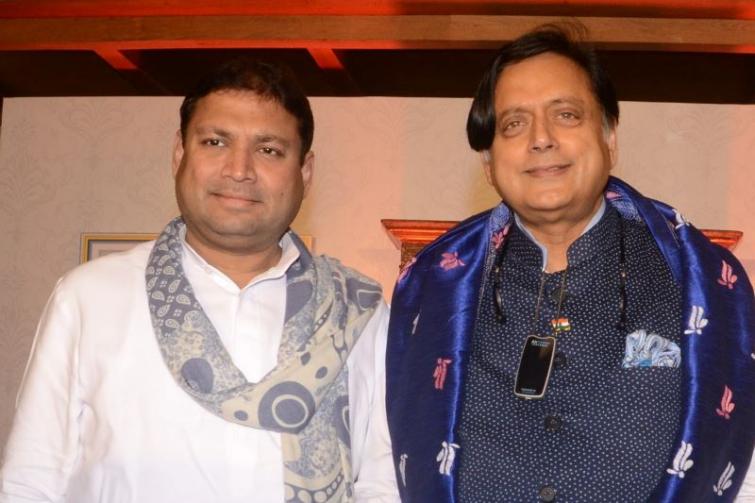
It is obviously a petty, narrow-minded and bigoted and fundamentally inaccurate message. In the name of authenticity, these pseudo-nationalists are rising, which is one of the reasons why globalisation is in such a bad trouble. Personally, I don't think it will endure for a very long time but don't know how much is very long.
You described the United Nations as intransigent in the book. Is it also appropriate to describe the Congress as intransigent?
I don't think one should merely substitute names of institution because history is a very different. But I will concede that in many ways, there is a need for change (in Congress). As you have been probably knowing that when Rahul Gandhi ji chose to step down and announced not only that he didn't want the job but didn't want any of his family members to take it, I took him at his words and publicly called for elections in the party, not only to his (Rahul Gandhi's) job but to the Congress working committee which has three categories of members- the elected members, permanent invitees and special invitees.
I had said let the elected members be at least elected. They have been nominating them for a long time now. I don't think anyone publicly disagreed with me, if they did, I haven't seen the press accounts of such disagreement. And privately they all agreed with me but that never happened. Despite Rahul ji's statement, the interim solution found was indeed a member of the family so that does suggest there is still a reluctance to change in the party.
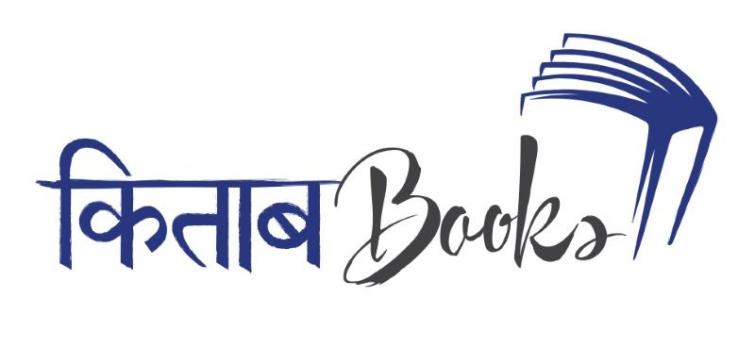
I think it's a pity because in many ways, I do believe that the process of election within the party will energise the workers giving them a sense that they are having a say in their own political destiny, determining their leaders and at the same time massively enhance the interest in the public in the party. There is a merit in saying that the electoral process can be a very useful way of just galvanising interest and attention and indeed stimulating energy amongst the party faithful.
How far do you think social media can influence election results?
I think it has a tremendous impact these days in shaping attitudes and agendas. It's very difficult to say to what degree the social media can influence because I would argue that in no real democracy, any one factor ever the only thing. I would argue that only one means of communication can never be enough. Among all things like banners, star campaigners, rallies, speeches, songs, social media plays an increasingly big role.
For next to nothing in cost, social media reinforces certain images over a period of time. Secondly, it becomes incredibly useful at gender-setting device. Social media helps the party to shift the narrative and provoke other parties to react. I would argue that social media singlehandedly has created this caricatured image of Rahul Gandhi as a "Pappu". Social media has degraded the political discourse to this kind of caricature.

Do you think focussing on local governance like Mr. Kejriwal is the way to fight against these trolls.
Yes up to a point. There are many things the AAP didn't do and it has exaggerated the works it has done. But what is interesting is Mr. Kejriwal learnt something that the rest of us could usefully learn but we won't because our convictions are at stake. He (Kejriwal) relentlessly avoided any temptation even to a stray off message. Kejriwal stayed away from visiting the universities where the students were beaten or stayed away from commenting because it didn't want any diversion from the message he was giving. So he was callous enough or clever enough to understand that anything he says to these kids would be used by the BJP to paint him as a rabble-rouser or whatever, whereas he wanted to come across as a responsible chief executive focussed on development. So it's very striking. None of us in Congress could have done that because we stand for that kind of compassion, human rights, liberal values.
Support Our Journalism
We cannot do without you.. your contribution supports unbiased journalism
IBNS is not driven by any ism- not wokeism, not racism, not skewed secularism, not hyper right-wing or left liberal ideals, nor by any hardline religious beliefs or hyper nationalism. We want to serve you good old objective news, as they are. We do not judge or preach. We let people decide for themselves. We only try to present factual and well-sourced news.







